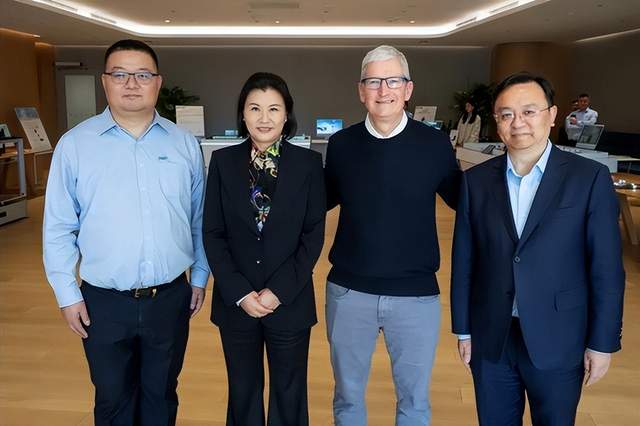"India is a pitfall, Apple quickly increases its bets on Chinese manufacturing
![]() 07/25 2024
07/25 2024
![]() 670
670
It is reported that most of the iPhone 16 will be manufactured by factories in mainland China. In addition to Foxconn's Zhengzhou factory, Luxshare Precision has received more orders, and BYD is also manufacturing iPhones for the first time, demonstrating that Apple is indeed increasing its bets on Chinese manufacturing this time.

Apple's increased reliance on Chinese manufacturing stems from the lessons learned from last year's iPhone 15. Last year, the iPhone 15 was manufactured concurrently in China and India, but the Indian-made iPhone 15 was criticized for having a yield rate as low as 50% and exceeding the E. coli limit, ultimately leading to returns from Europe, and Chinese consumers also rejected the Indian version. Apple was forced to issue a statement stating that iPhones for the European and Chinese markets are supplied by Chinese manufacturing.
For Apple, another factor driving its increased reliance on Chinese manufacturing is the unexpected response from Chinese consumers. Since its launch, last year's iPhone 15 has struggled to sell well in the Chinese market, with some consumers expressing dissatisfaction over Apple's reduction in Chinese manufacturing. As China is Apple's largest market, CEO Tim Cook quickly reassured Chinese consumers by pledging to increase cooperation with Chinese companies and meeting with executives from suppliers such as Luxshare Precision and BYD during his visit to China earlier this year. Now that iPhone 16 is being manufactured by multiple Chinese vendors, it means that Cook's promise is being fulfilled.
Domestic 5G smartphones have also put pressure on Apple. A tech company relaunched its 5G smartphone at the end of August last year, and with its launch, it is said to have taken away a significant share of Apple's market. This 5G smartphone emphasizes the localization of most components, which contrasts sharply with Apple's reduction in Chinese manufacturing.
In response, Apple's list of core suppliers released this year shows that six Chinese suppliers were removed but 10 new ones were added, indicating an increase in the proportion of Chinese supply chain companies in iPhone 16 and demonstrating Apple's commitment to strengthening cooperation with Chinese manufacturing.

Of course, the primary reason for Apple's increased reliance on Chinese manufacturing is that India has proven to be a pitfall. Apple has pushed Foxconn, Wistron, and Pegatron to set up factories in India, but their development there has been slow, akin to a snail's pace compared to their growth in mainland China. Foxconn's Zhengzhou factory was completed and recruited 300,000 employees in just two years.
One of these factories, Wistron, has already fallen into a trap in India. Its Indian factory has been acquired by the Indian conglomerate Tata, and in 2023, Apple only allocated 1% of iPhone 16 orders to Wistron, essentially pushing it out of the iPhone manufacturing business. Recently, Pegatron's Indian factory has also been rumored to be in talks with Tata, and it is widely believed that given Tata's strong position, Pegatron's Indian factory will inevitably be acquired.
Apple itself has also fallen into the trap of Indian conglomerates. While Apple has full control over its retail store system globally, due to the strength of Indian conglomerates, Apple's retail stores in India are mostly partnerships with them. With Tata acquiring iPhone factories, future iPhone production and sales in India may be subject to the control of Indian conglomerates, a result that Apple finds unacceptable.
Apple is constrained at every turn in India, yet the benefits it derives from the country are quite limited. Due to India's low consumption level, iPhone sales in India are not high, with estimates suggesting that the number of iPhones sold in India is only about one-fifth of that in the Chinese market. In such a situation, Apple is clearly aware of how to balance its Chinese and Indian markets.
Based on practical interests, Apple has now made a choice to increase its commitment to manufacturing in China. This move aims to restore the confidence of Chinese consumers. As a result, the proportion of iPhones manufactured in India may decrease. Chinese manufacturing has always been known for its high quality and high efficiency, in addition to having a well-developed supply chain. Furthermore, Foxconn in Zhengzhou is actively recruiting personnel. Reportedly, Foxconn in Zhengzhou has offered a bonus of 7,500 RMB to attract employees and boost the production capacity of the iPhone 16.







